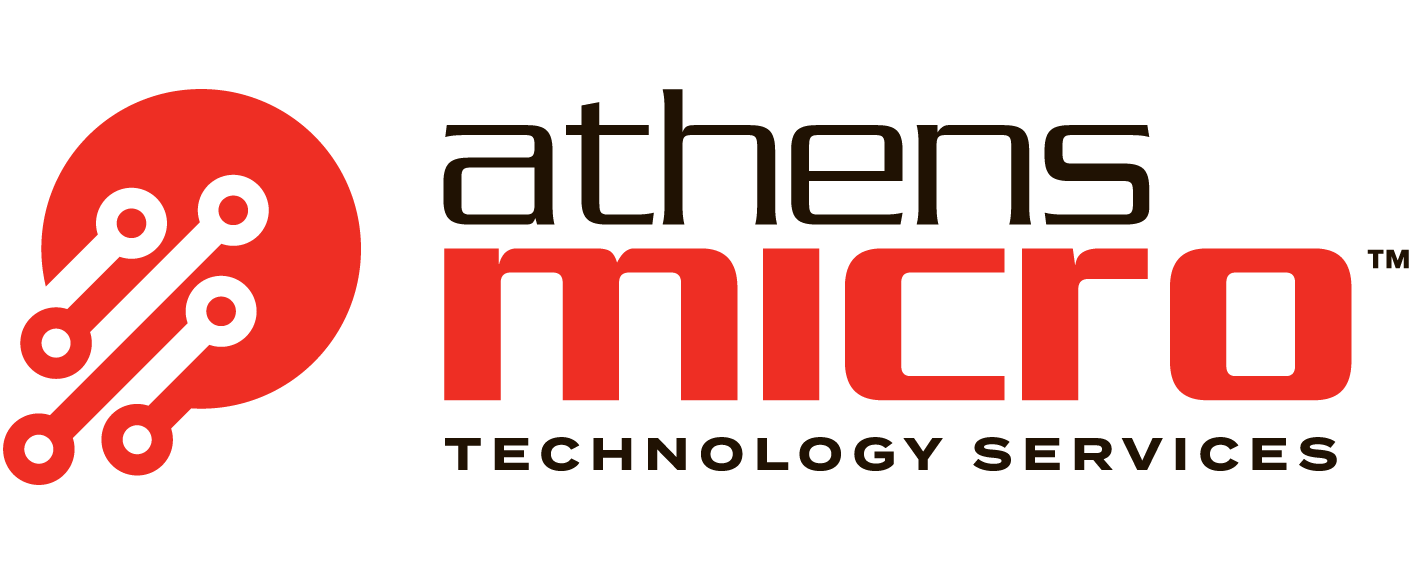Data is wide open to attackers.
It happens every day. Passwords alone no longer cut it. The good news? Multi-factor authentication (MFA) can slam that door shut — even when credentials fall into the wrong hands.
Introduction
Today, businesses face constant threats: phishing, credential theft, brute-force attacks. A simple username and password can no longer be your frontline defense. That’s where MFA comes in — adding critical layers of protection to your logins.
Athens Micro has been helping businesses — from small startups to large enterprises — fortify their security with MFA for business. As a trusted IT support company and IT consultant, we specialize in smart, practical solutions like MFA that dramatically reduce your cyber risk.
This blog unpacks what MFA is, how it works, and why your business needs it now more than ever.
1. What is Multi-Factor Authentication (MFA)?
Defining MFA
MFA is a security process that requires users to present two or more verification factors to access an account. Instead of relying solely on a password, MFA combines multiple layers — like a password plus a one-time mobile code or fingerprint.
The Three Core Factors
MFA typically draws from three categories:
- Something you know (password, PIN)
- Something you have (smartphone, security token)
- Something you are (fingerprint, facial recognition)
This combination makes it exponentially harder for attackers to break in.
2. Why Does Your Business Need MFA?
Prevent Credential-Based Attacks
Stolen or leaked passwords are one of the leading causes of data breaches. MFA ensures that even if a password is compromised, attackers hit a wall — they can’t get past the second or third layer of authentication.
Protect Remote and Hybrid Teams
With employees logging in from home, airports, or coffee shops, the attack surface has exploded. MFA helps secure every login, whether users are on company laptops, personal devices, or mobile phones.
3. The Business Benefits of MFA
Reduce Risk of Financial Loss
Cyberattacks don’t just threaten data — they threaten your bottom line. Implementing MFA can drastically lower the chance of costly breaches, ransomware demands, or regulatory fines.
Build Customer and Partner Trust
Demonstrating strong security practices like MFA signals to customers, partners, and stakeholders that your business takes data protection seriously. It becomes a competitive advantage, not just a compliance check.
4. How MFA Works in Practice
Example 1 — Employee Logins
When an employee logs into a business app, they enter their password. Next, they approve a push notification on their smartphone. Without both steps, access is denied.
Example 2 — Admin Access
For sensitive systems, an administrator may log in with a password, plus a hardware token that generates a one-time code. This protects the most critical assets, even from insider threats.
5. Getting Started with MFA
Choose the Right MFA Solution
Work with an IT consultant or computer consultant to select an MFA tool that fits your business — whether it’s app-based, hardware-based, or integrated into existing platforms.
Roll It Out Strategically
Start with the most critical systems and user groups, then expand. Provide training so employees understand the value and feel confident using MFA.
6. Common MFA Challenges (and How to Overcome Them)
User Friction
Employees may worry that MFA will slow them down. The key is choosing solutions that balance security with ease of use, like mobile push notifications or biometric options.
Recovery and Backup
Plan for lost devices or lockouts. Set up backup codes or alternative authentication methods so employees aren’t locked out when they need access most.
7. The Future of MFA
Moving Beyond Passwords
MFA is evolving toward passwordless authentication — using biometrics, hardware keys, or magic links. Businesses that adopt these innovations stay ahead of the security curve.
Integration with Managed IT Services
Many businesses partner with managed IT services providers to deploy and manage MFA across systems, ensuring smooth implementation and ongoing support.
8. Compliance and Regulatory Requirements
Meeting Industry Standards
Many industries — such as healthcare, finance, and legal — are now required to implement MFA under compliance frameworks like HIPAA, PCI DSS, or GDPR. MFA helps you meet these obligations and avoid penalties.
Passing Security Audits
With MFA in place, your business is better positioned to pass client or regulatory security audits, giving you peace of mind and strengthening relationships with key partners.
9. MFA for Different Business Sizes
Small Businesses
MFA isn’t just for enterprises. MFA for small businesses can be affordable, scalable, and easy to deploy — making it a smart investment even for teams of 5 to 50.
Mid-Sized and Enterprise Organizations
Larger organizations benefit from more advanced MFA features, like adaptive authentication, single sign-on integrations, and centralized management — often delivered as part of managed IT services for businesses.
10. Integrating MFA with Other Security Measures
Layered Security Approach
MFA works best when combined with firewalls, endpoint protection, encryption, and employee training. Together, they create a multi-layered defense that frustrates attackers at every turn.
Partnering with Experts
Athens Micro’s team of IT consultants and computer consultants help businesses integrate MFA alongside other tools, creating a seamless, secure experience for users and administrators alike.
Conclusion
MFA is no longer optional — it’s an essential tool in the fight against cyberattacks. By adding layers of verification, businesses can protect sensitive data, strengthen trust, and reduce risk.
Athens Micro
At Athens Micro, we help businesses integrate MFA seamlessly, providing expert guidance and managed IT services to keep your systems secure. Whether you’re just starting out or need enterprise-wide coverage, we’re here to help.
Ready to upgrade your security posture? Contact us today to schedule a consultation and secure your business with MFA.

